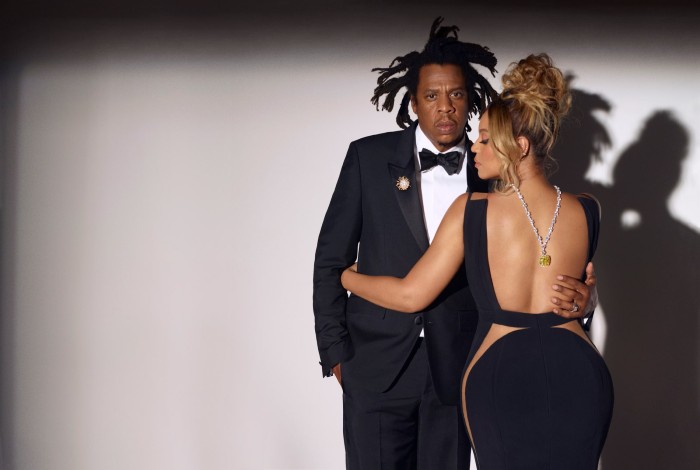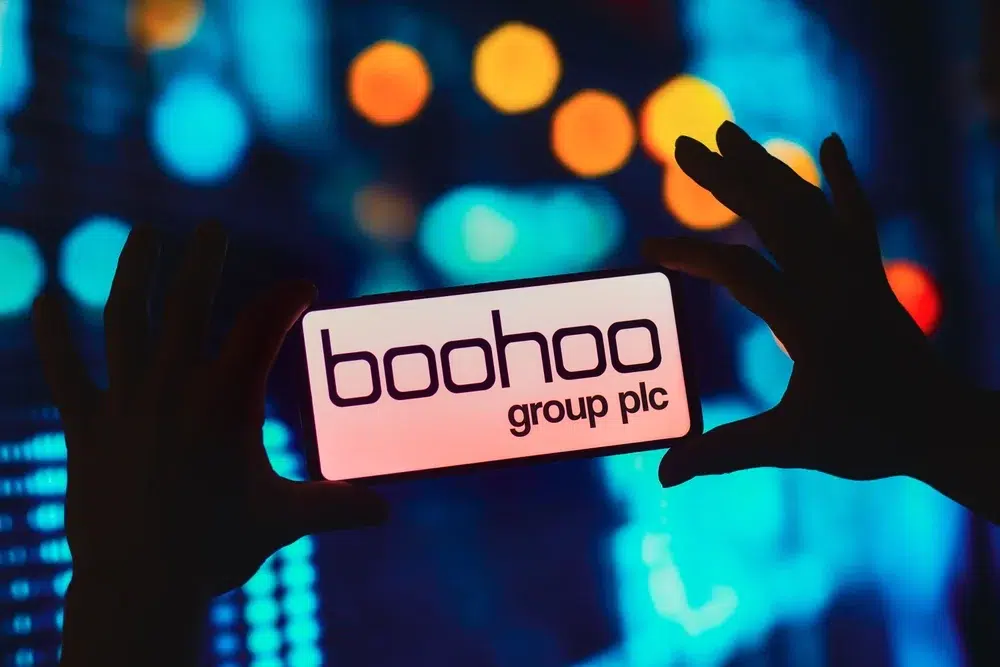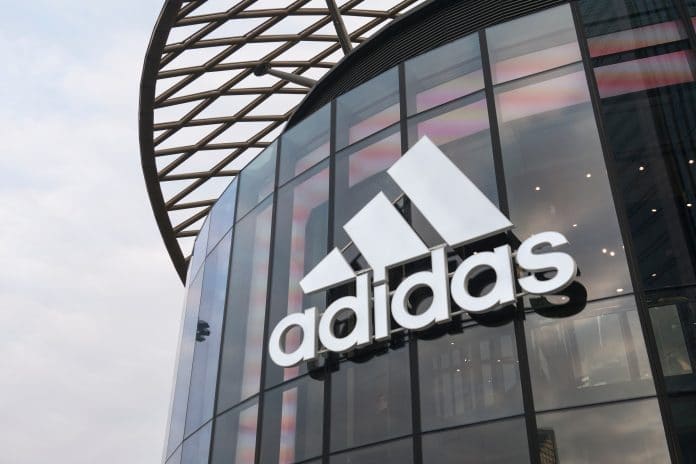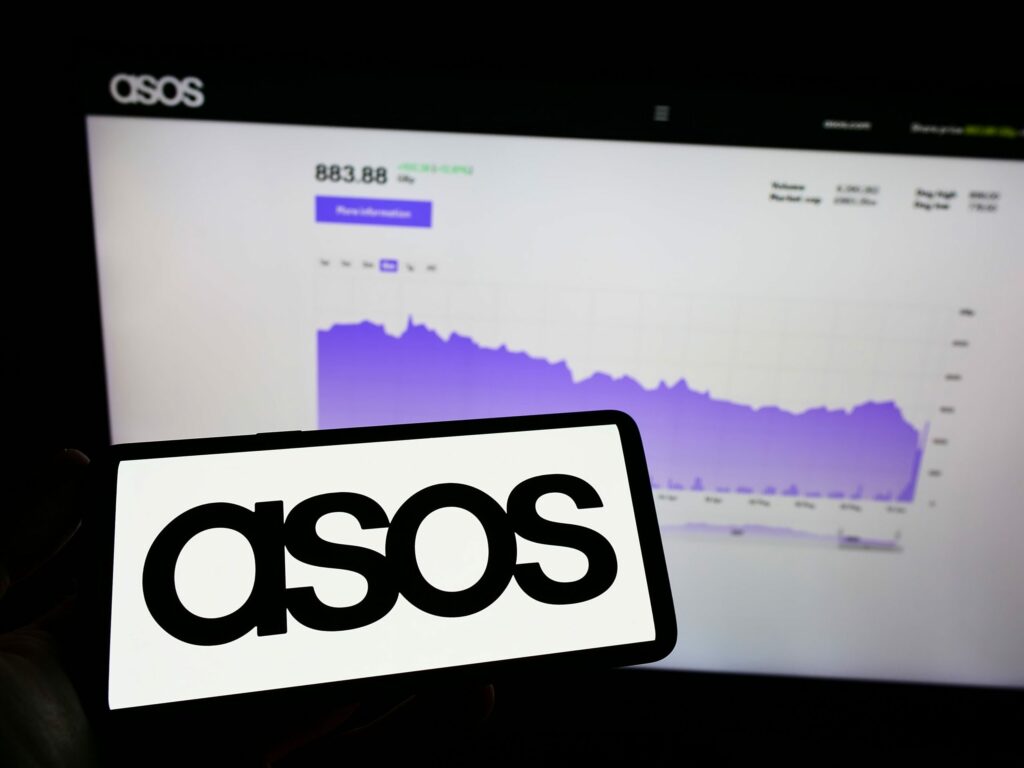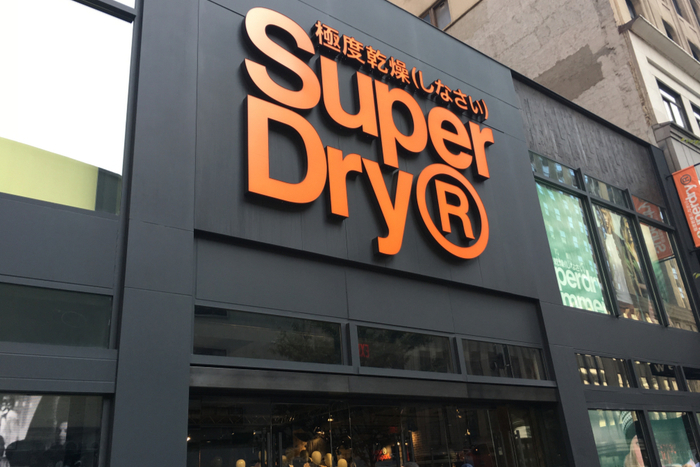As luxury brands shift focus from older, more financially established consumers to those under 25, many are turning to hip hop icons to earn credibility with their new audience.
It’s becoming more evident that Louis Vuitton and Tiffany & Co owner LVMH is attracted to hip hop culture, particularly after its latest campaign featuring rapper Jay Z and Beyoncé.
Last month, Tiffany revealed a new campaign about modern love featuring the celebrity couple with a Basquiat painting as a backdrop. Titled Equals Pi (1982), the long-unseen turquoise painting is meant to recall the luxury retailer’s signature shade of blue.
In the Tiffany ad, Beyoncé wears an all-black diamond-studded Balmain look inspired by Audrey Hepburn’s dress in the 1961 film Breakfast at Tiffany’s. Jay Z, meanwhile, is outfitted in clothes intended to mimic Basquiat’s outfit when he appeared on the cover of New York Magazine in 1985.
Luxury conglomerate LVMH acquired Tiffany at the start of the year, and restructured the management and creative teams in a revamping of the historic jewellery house.
As part of the collaboration with Beyoncé and Jay Z, Tiffany pledged to give $2 million dollars to fund scholarship and internship programs for Historically Black Colleges and Universities.
Earlier this year, LVMH’s Moet Hennessy bought a 50 per cent stake in Armand de Brignac, a Champagne producer owned by Jay Z, another sign of a close relationship between the luxury industry and hip hop culture.
In July, LVMH bought a 60 per cent stake in luxury streetwear brand Off-White, as it doubled down on the Pied Piper of fashion, Virgil Abloh’s fashion reign.

This investment boosted LVMH deeper into the sportswear markets with ties to its unrivalled roster of brands.
Hip hop is undoubtedly a powerful tool for reaching Generations Y and Z, who are expected to account for 45 per cent of the global luxury spend by 2025, according to Bain & Company.
Despite the Covid-19 pandemic affecting the luxury sector, LVMH has reported revenue of £24.5 billion in the first half of the year, up 56 per cent compared with the same period last year.
The French conglomerate said this was due to accelerated growth in the second quarter of the year, during which organic revenue increase by 14 per cent compared with eight per cent in the first quarter.
Luxury marketplace HushHush founder, Mark Pearson told Retail Gazette that the integration of streetwear and hip hop culture into the luxury industry is not showing any sign of slowing down.
“When LVMH enlisted Virgil Abloh as a creative menswear designer for Louis Vuitton back in 2018, they drew an emblematic line in the sand, giving streetwear brands and designers a seat at the highly monopolised luxury fashion table,” he said.
“This was the first stage of LVMH’s incorporation into ‘hip hop culture’, and since then they’ve continued to invest in this future vision for the company, while still maintaining extremely high levels of success and growth.
“The corporation is certainly betting on hip hop culture to drive growth, but this isn’t a bad bet by any stretch.”
Sophie Hillier, Fashion Business and Promotion lecturer at Birmingham City University argued that celebrity choices for luxury brands are becoming “extremely outdated”.
“Celebrity culture has changed hugely and it doesn’t necessarily have the pull anymore,” she told Retail Gazette.
“I was quite surprised to see Beyoncé and Jay Z as the face of Tiffany recently and thought personally it was a very dated choice.
“The corporation is certainly betting on hip hop culture to drive growth”
“Consumers today are demanding brands to be more engaging and relatable and look to other types of ‘influencers’ more than celebrities.
“I believe that major designer brands need to look at updating their marketing strategy and research who their consumers actually want to see wearing their brands.”
Pearson said LVMH needs to be opportunistic in order to become successful as a corporation.
“However, the difficulty many brands face is striking a balance between opportunism, and ensuring they don’t ‘sell out’ and lose integrity and reputation through poor commercial partnerships,” he said.
“This is done through careful collaborations with celebrity ambassadors – the affiliation with Jay-Z makes sense, based on LVMH’s recent strategic decisions.”
Meanwhile, retail expert Nelson Blackley said LVMH and other luxury conglomerates risk losing credibility by relying on hip hop celebrities.
“There is a risk they may lose some credibility with their traditional customer, but LVMH are sensibly looking to ‘future proof’ their brands in a world where it is predicted that younger consumer will account for 45 per cent of global luxury market by 2025,” he said.
“These moves by luxury conglomerates are simply reflecting the shifting attitudes of affluent consumers towards experiences and digital and of course the impact of social media platforms, in particular Instagram.”
It is evident that streetwear culture has become mainstream and many luxury fashion retailers are shifting their framing to accommodate this.
Fashion is very much based on trends and waves, so retailers look to capitalise on these trends and then get out as quickly as possible as to not become dated.
While LVMH is using hip-hop to remain relevant, this doesn’t have a huge impact on it’s economic growth.
Another thing to take into account is that the young Gen Z market grew up on hip-hop being seen as popular culture, so as their spending capabilities come into full fruition, these retailers are going to need to partner and invest in streetwear in order to keep their attention.
Click here to sign up to Retail Gazette’s free daily email newsletter

